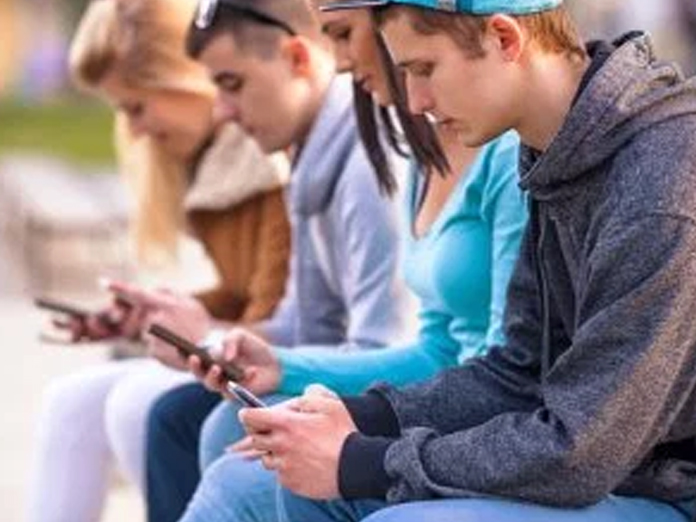Live
- K’taka, Gujarat top States in clean energy transition
- Lord Rama Brahmothsavalu concluded on grand note
- Meta Unveils Ray-Ban Smart Glasses Update for WhatsApp Video Calls
- Barrelakka files nomination as Nagarkurnool candidate
- BRS chief KCR to Embark on Bus Yatra Ahead of Parliamentary Elections from today
- Congress still undecided
- All-time highest score by Narayana student in AP SSC results
- TS Inter results announced, here is the direct link
- KTR rallies support for Praveen Kumar
- Deadline for submission of nominations for fourth phase elections to end tomorrow
Just In

Harshal name changed would spend hours glued to his smartphone, chatting on nearly 30 groups on WhatsApp and surfing other social networking sites The 27yearold Punebased painting contractor did not realise that he was suffering from screen addiction till it started taking toll on his health and professional life Now, having undergone a deaddiction treatment, he is happy to be a digital
Pune: Harshal (name changed) would spend hours glued to his smartphone, chatting on nearly 30 groups on WhatsApp and surfing other social networking sites. The 27-year-old Pune-based painting contractor did not realise that he was suffering from 'screen-addiction' till it started taking toll on his health and professional life. Now, having undergone a de-addiction treatment, he is happy to be a "digitally detoxed" person.
After undergoing rehabilitation at the Manovikas screen de-addiction centre here, Harshal is now following strict rules about the use of smartphone and internet. He has not only deleted several social media applications from his phone, but also reduced the number of WhatsApp groups to three and prefers reading books and practising mediation.
His is not the only such case. As many as 95 cases of internet/screen addiction have been reported at this centre in the last two months, said Dr Ajay Dudhane, chairman of Anandvan (drug and alcohol) De-Addiction and Rehabilitation Centre, which runs the screen de-addiction facility in Pune. The addicts are mostly in the age group of 16 to 27 years. Two of them were so severally addicted to internet gaming, online shopping and surfing social media sites that they had to be admitted at the facility, he said. "Of late, during our alcohol and drug addiction rehabilitation work, we got requests from some colleges about students being addicted to their smartphones so much that it was affecting their studies and attendance," said Dudhane.
The NGO, in its questionnaire for students, was surprised to find out that the 'last seen' status of majority of them on the messaging apps were 2.30 am, 3 am and 3.30 am. "The findings showed that students, who had morning classes, used to be on social media sites till late hours and it was affecting their health and studies," he said.
Elaborating on the case of a 17-year-old youth from Mumbai, he said the boy used to be on several social media sites and had the habit of posting his locations to invite cheers and comments from his friends. The boy used to share locations, like of five-star hotels, where he was not even present. One day, he posted a fake message, saying he was on way to London and shared a location of the Mumbai international airport. "This was the wake up call for his parents, who then brought him to us," he said.

© 2024 Hyderabad Media House Limited/The Hans India. All rights reserved. Powered by hocalwire.com







